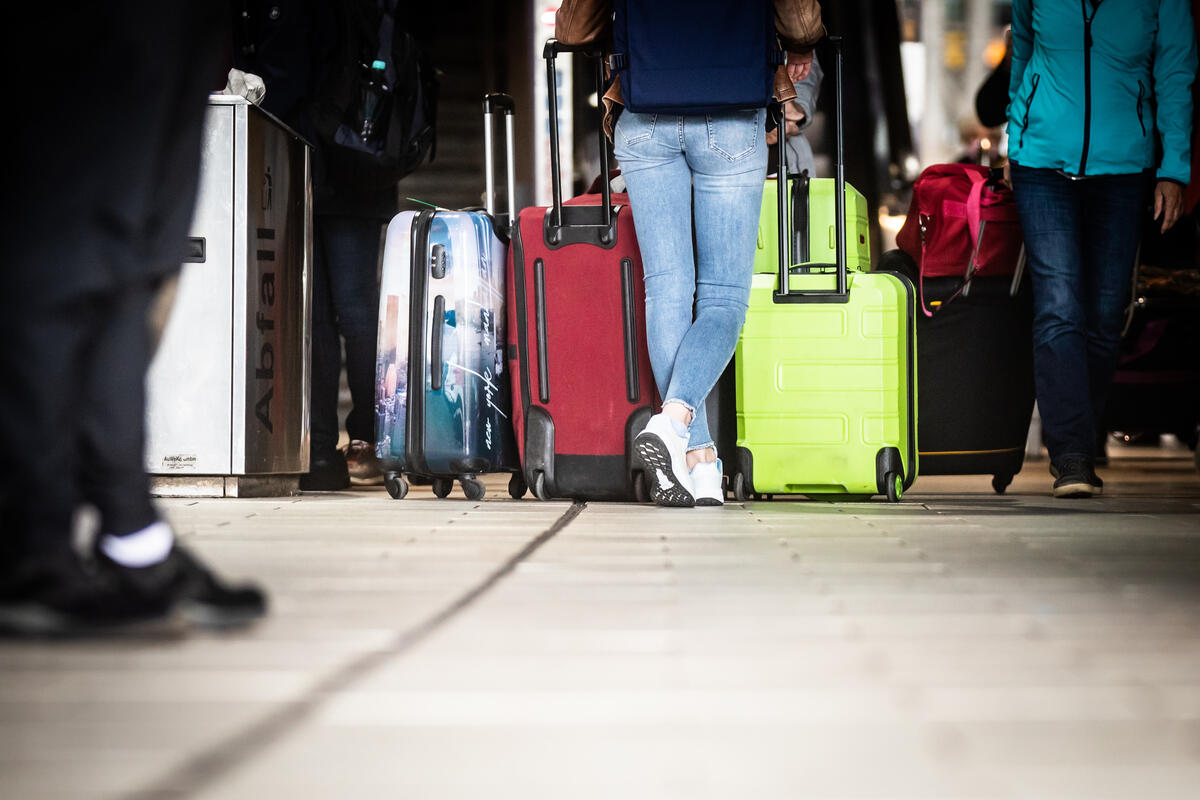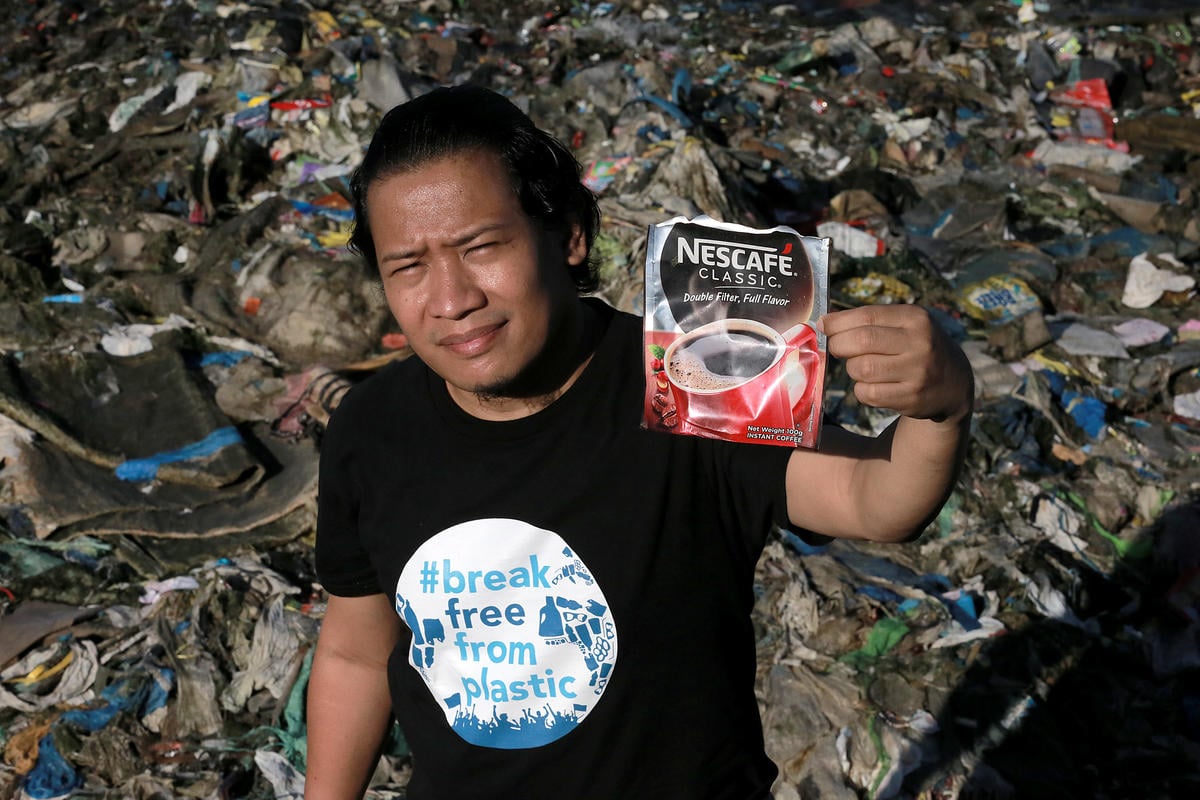
Froilan Grate shows a discarded pack of a Nestle product as he stands on a trash-filled shoreline along Manila Bay in Navotas City, Philippines.
Plastic pollution might be very visible in the Philippines and other Asian countries, but the crisis started somewhere else. It began in the boardrooms of the top multinational companies when they decided to dump products packaged in single-use, non-recyclable plastic in places where there is no infrastructure to manage them.
Guimaras, the name of the island where I grew up, is located in Central Philippines. It is blessed with turquoise water, white sandy beaches, sweet mangoes, and some of the warmest people on the planet.
When I left the island 18 years ago for university in the Philippine capital of Manila, I was shocked to see Manila Bay – the water was almost black, and instead of colourful coral and fish, plastic waste was everywhere. A deep sense of fear crept into me that this could also happen to the island I call home.
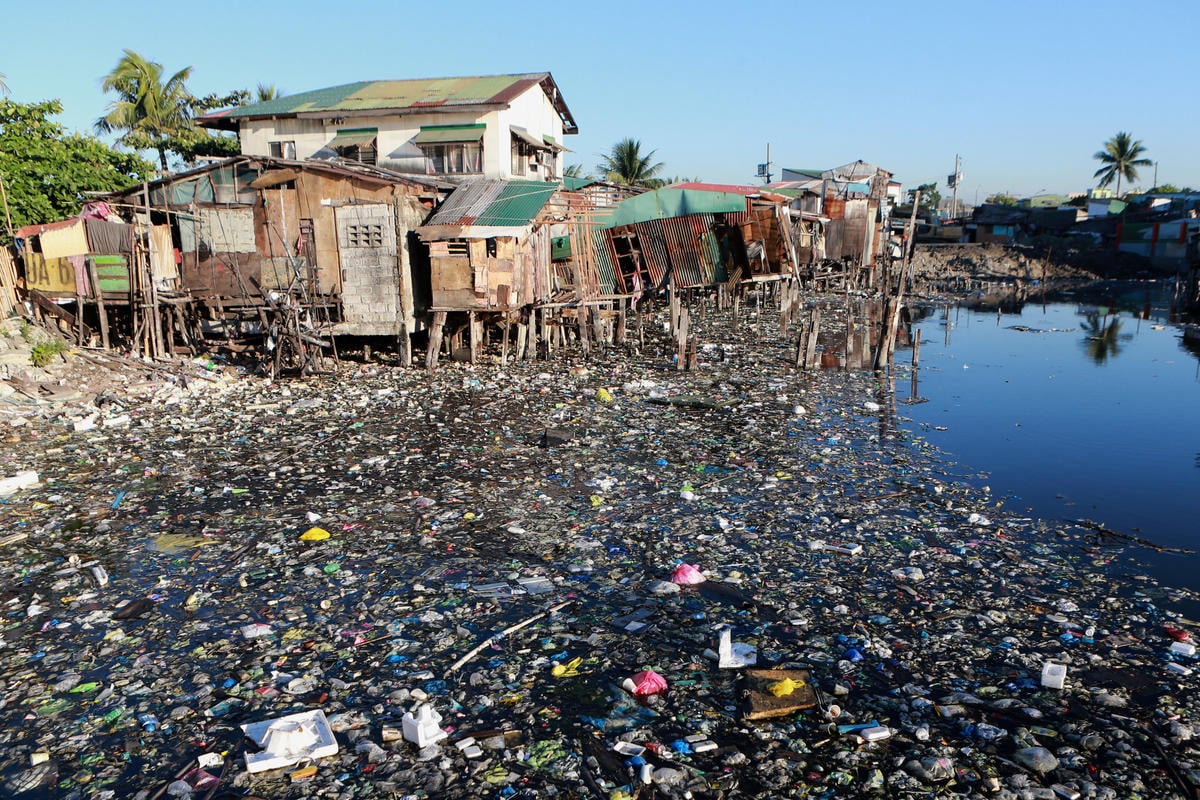
A trash-filled river is seen in Barangay Bagumbayan North in Navotas City, Philippines.
My determination to protect my home eventually led me to the Global Alliance for Incinerator Alternatives (GAIA). A key component of our work is helping communities implement zero waste programs. Through waste segregation, local composting and recycling, communities and cities can reduce their waste by as much as 80%.
But despite our best efforts, up to 30% of the waste can’t be composted or recycled. Communities often ask us: “Why are you putting the responsibility of managing this waste on us, and not on the corporations that created it? Tell these companies to stop making it, and our waste problem is solved.”
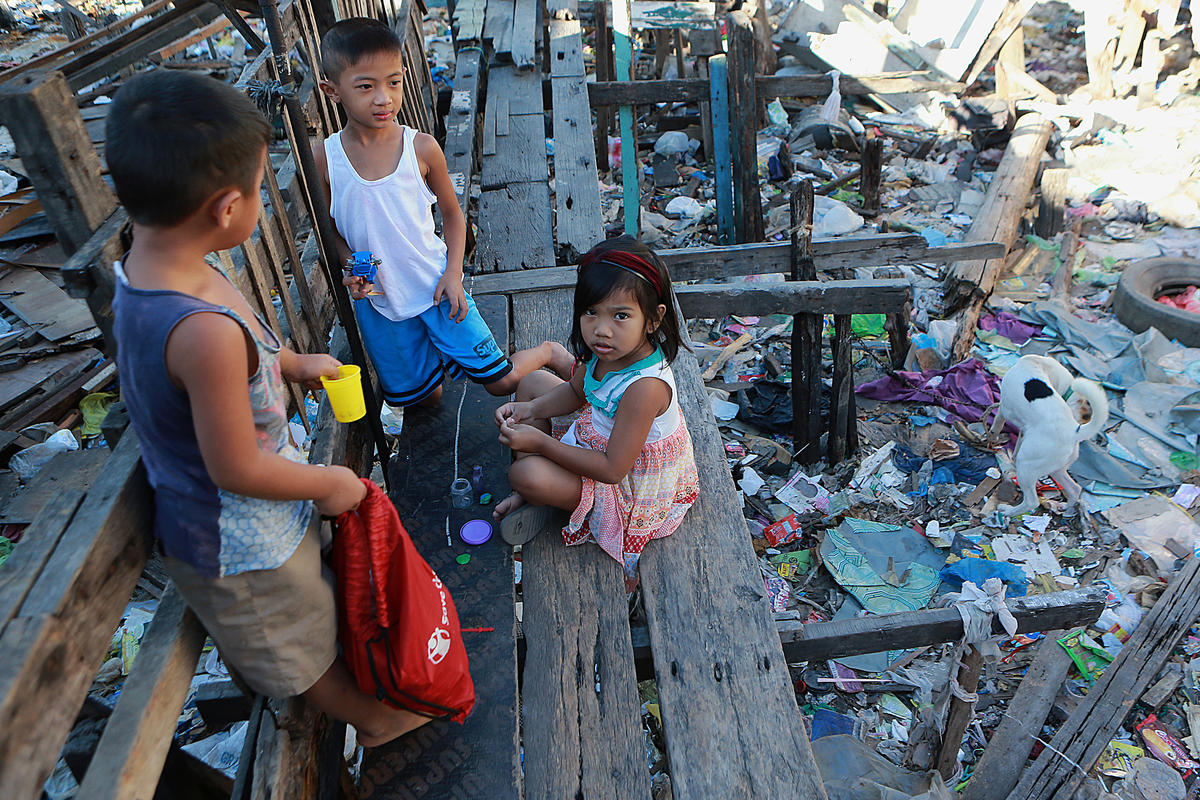
Children play on a trash-filled river in Barangay Bagumbayan North in Navotas City, Philippines.
Today I am excited to join Greenpeace International as they launch a global ship tour to expose the corporations that are responsible for the plastic pollution crisis. Corporations like Nestlé and Unilever have created a monster, and communities all over the world are coming together to tell them we will no longer take the blame for their irresponsible decisions.
Cities and communities working on zero waste are showing that solutions are already happening. Join us to demand that corporations move beyond their empty promises and meaningless recycling targets and take real concrete action to solve the plastic pollution crisis. And watch this space for much more to come!
Froilan Grate is the Executive Director of GAIA Asia Pacific based in Manila, Philippines. GAIA, together with Greenpeace and others, is a core member of the global Break Free From Plastic movement.
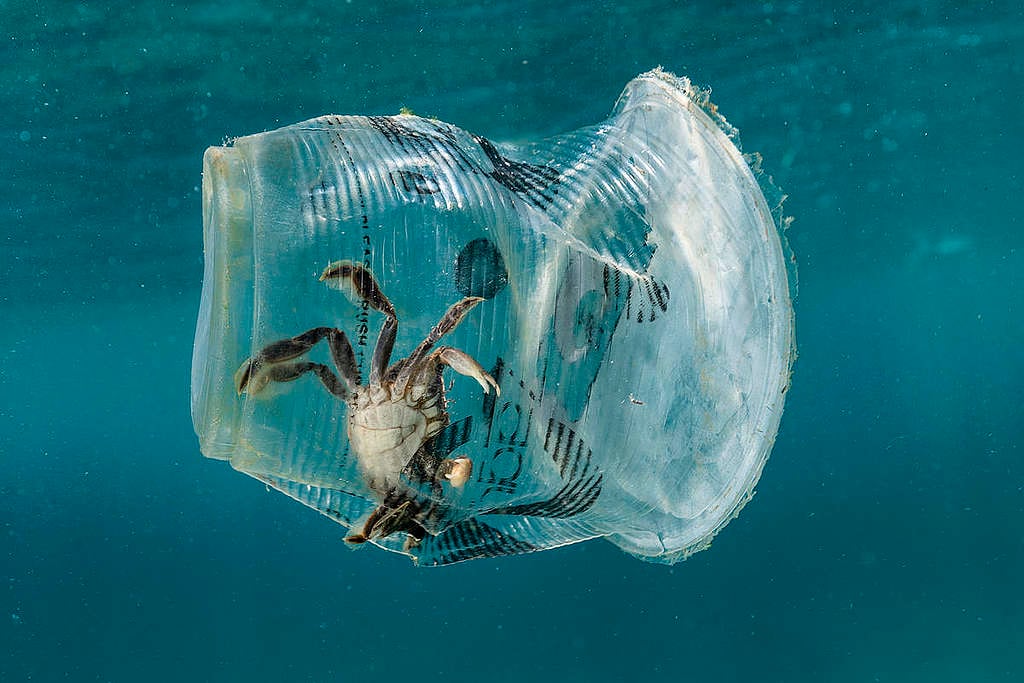
Ask world leaders to support a strong Global Plastic Treaty that addresses the whole life cycle of plastic.
Take action


